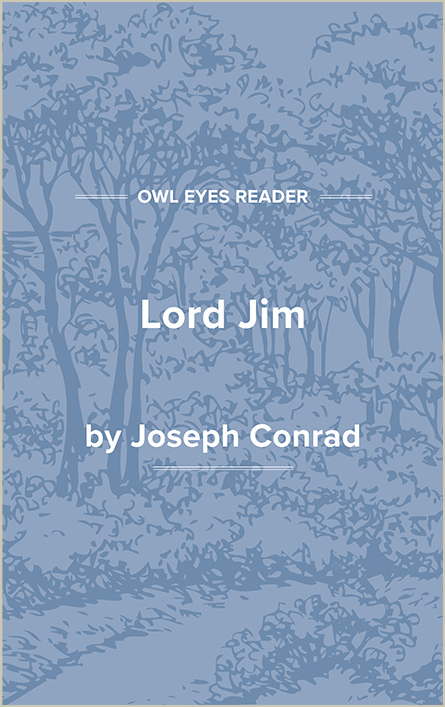Study Guide
Summary
Lord Jim, Conrad’s most famous work, is also his most extensive examination of a persistent theme: the conflict between an individual’s inner moral code and his or her outward actions. Throughout Conrad’s short stories and novels, his characters are often afraid, even obsessed, with the concern of how their personal standards will bear up under the stress of events. This situation is explicit in Lord Jim. As a young boy learning the sailor’s craft, Jim is certain he will meet the test of moral courage, but later, while serving as a first mate on the Patna, an old, unseaworthy steamer carrying Moslem pilgrims across the Indian Ocean, he fails the test. The Patna strikes an unknown object in the night and seems ready to sink. The crew, including Jim, abandons the ship and its passengers. When the drifting Patna is discovered and the events are revealed, Jim becomes an outcast, both literally and morally.
These events occur quickly, and the bulk of the novel consists of Jim’s personal and moral redemption. For a while, he drifts from port to port, leaving when his identity is discovered. Finally, he abandons the world of Europeans altogether and heads upriver to a small Malay village. Even there, however, he finds he cannot escape the demands of his sensitive moral feelings and must prove to himself that he is not a coward.
Jim’s early efforts win praise, especially when he rids the countryside of the notorious bandit, Sherif Ali. Yet this is not enough for Jim, who intuitively senses that his honor has not been restored nor his moral balance satisfied. That occurs only at the end of the novel, after Jim has inadvertently caused the death of a Malay friend, the son of a powerful local chief. Knowing that it will mean his own death, Jim accepts his responsibility without hesitation or fear, and his action redeems the long years of exile caused by his moment of fear and indecision on the Patna.
Such a relatively simple tale might seem more suitable for a short story than a full-length novel, and when Lord Jim was first published, many critics complained that it was too long. Such is not the case, however, for the power and impact of Lord Jim lie not in narrative actions but in psychological nuances and meanings.
Once again, Conrad uses Marlow as both a character and a narrator. Marlow, who went through his own testing experiences in the short...
(The entire page is 631 words.)
Owl Eyes subscribers get unlimited access to our expert annotations, analyses, and study guides on your favorite texts. Master the classics for less than $5/month!

